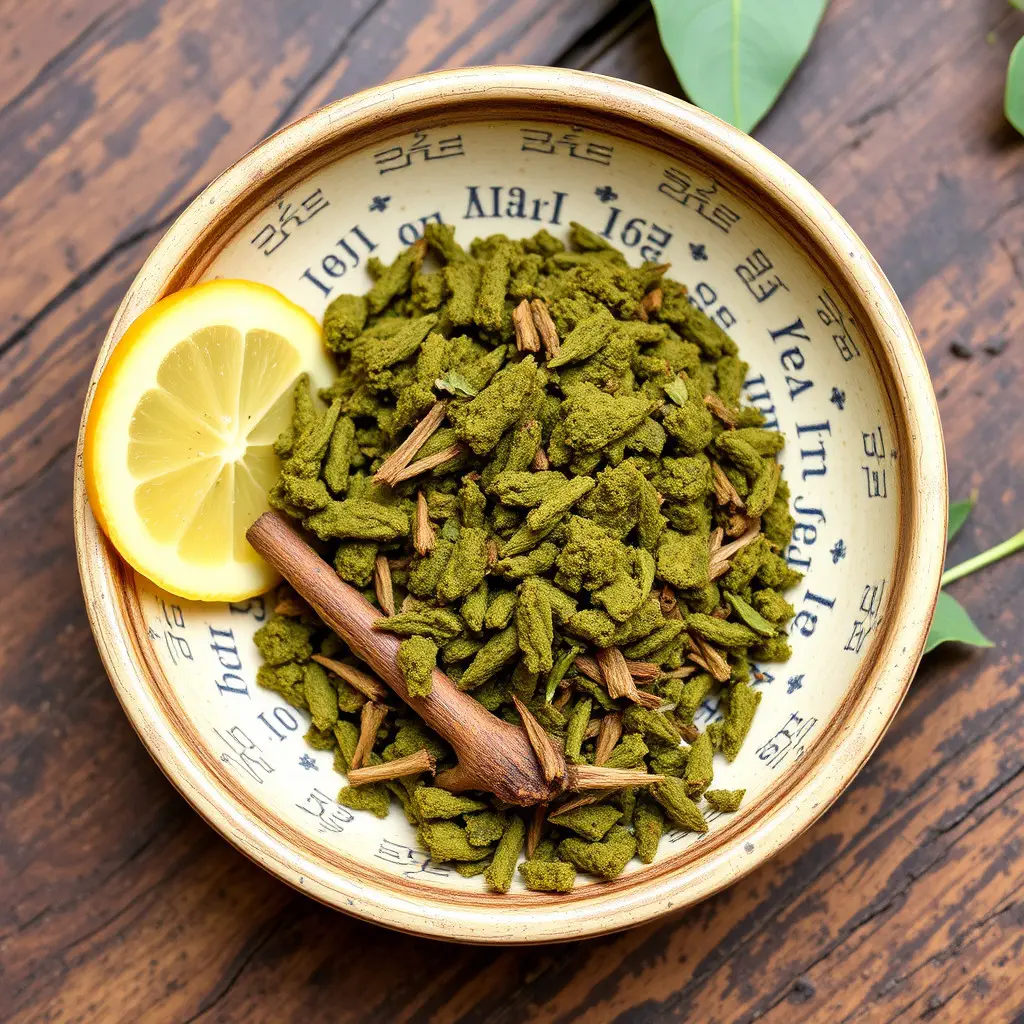Kratom, a plant from Southeast Asia with active alkaloids like mitragynine, shows promise for cardiovascular health by potentially lowering blood pressure, improving vascular function, and reducing inflammation, which may contribute to better cholesterol profiles. However, its use should be carefully considered due to unpredictable effects and the need for medical advice, especially for those with heart conditions or on other medications. The role of kava smoking accessories in influencing both the experience and health outcomes of kratom consumption is significant but indirect regarding direct cardiovascular impact. While preclinical studies are promising, more research is needed to establish safety, efficacy, and optimal dosing for kratom in cardiovascular health. The potential benefits of kratom should be weighed against the risks, with a comprehensive approach that includes professional medical guidance, traditional treatments, and an awareness of how complementary practices like kava use can impact overall well-being. Integrating kratom cautiously into holistic health strategies, alongside responsible kava smoking accessory use and a balanced diet with regular exercise, could support cardiovascular health when medically supervised.
exploring the role of kratom in bolstering cardiovascular health, this article delves into the potential benefits and scientific underpinnings of kratom’s alkaloids on heart wellness. We examine how these compounds may contribute to improved heart function and discuss the integration of kratom within a comprehensive heart health regimen. With a focus on balanced risk assessment and leveraging kava smoking accessories as part of this approach, readers can gain insights into harnessing kratom’s cardiovascular potential safely and effectively.
- Unraveling the Potential Benefits of Kratom for Cardiovascular Wellness: A Closer Look
- Kratom's Alkaloids and Their Impact on Heart Health: Understanding the Science
- Integrating Kratom into a Holistic Approach to Supporting Heart Health: Balancing Risks and Rewards with Kava Smoking Accessories
Unraveling the Potential Benefits of Kratom for Cardiovascular Wellness: A Closer Look

Kratom, a mitragynine-containing plant from Southeast Asia, has garnered attention for its potential impact on cardiovascular health. Emerging research suggests that certain alkaloids found in kratom may offer beneficial effects on the heart and circulatory system. These compounds are believed to influence blood pressure regulation and improve vascular function through mechanisms that could involve the relaxation of arterial walls and the reduction of inflammation within the cardiovascular system. Additionally, some studies indicate that kratom’s alkaloids might contribute to healthier cholesterol profiles by modulating lipid metabolism. While these findings are promising, it is imperative for individuals to approach the use of kratom with caution and under medical supervision, especially considering the varied and sometimes unpredictable effects it can have. It’s also noteworthy that kava smoking accessories, which are often used in conjunction with kratom, should be considered in any discussion about its consumption, as these can affect the experience and potential health implications. Users are advised to seek guidance from healthcare professionals before incorporating kratom into their wellness routines, particularly those with pre-existing cardiovascular conditions or on other medications. The safety, efficacy, and appropriate dosing of kratom for cardiovascular wellness remain subjects of ongoing research and should be carefully evaluated against traditional medical advice and interventions.
Kratom's Alkaloids and Their Impact on Heart Health: Understanding the Science

Kratom, a tropical evergreen tree native to Southeast Asia, has garnered attention for its potential impact on cardiovascular health, attributed to its unique alkaloid profile. The primary active components in kratom, mitragynine and 7-hydroxymitragynine, have been extensively studied for their effects on the heart. These alkaloids may contribute to improved circulation and heart function by promoting vasodilation, which can lower blood pressure and reduce the strain on the cardiovascular system. Preclinical studies suggest that kratom’s alkaloids interact with various receptors and signaling pathways in the body, potentially offering protection against heart ailments. Additionally, there is emerging evidence that these compounds may have anti-inflammatory properties, which are crucial in preventing atherosclerosis and other cardiovascular diseases often exacerbated by chronic inflammation.
Furthermore, the role of kratom alkaloids in modulating heart rhythm and cardiac contractility is an area of ongoing research. While the scientific understanding of how these compounds affect the heart is still evolving, some preliminary findings are promising for those seeking natural alternatives to improve their cardiovascular health. It’s important to approach such findings with caution, as kratom’s effects can be complex and may vary among individuals. In this context, kava smoking accessories, which are often used in conjunction with kratom, should also be considered for their potential impact on the respiratory system and overall well-being, although they are not directly related to cardiovascular health. As the science continues to unravel the mechanisms by which kratom influences heart health, a more comprehensive understanding will enable informed decision-making regarding its use as a potential therapeutic agent for those with cardiovascular concerns.
Integrating Kratom into a Holistic Approach to Supporting Heart Health: Balancing Risks and Rewards with Kava Smoking Accessories

When considering the integration of Kratom into a holistic approach for supporting cardiovascular health, it is crucial to navigate its potential benefits and risks carefully. Kratom, derived from the leaves of Mitragyna speciosa, has been studied for its effects on various physiological systems, including the heart. Proponents suggest that certain strains of Kratom may promote improved circulation and cardiac function by easing stress on the heart and potentially reducing the risk factors associated with heart disease. However, it is imperative to approach its consumption with caution as Kratom can interact with medications and may have adverse effects, particularly at high doses.
To safely incorporate Kratom into a holistic health regimen aimed at cardiovascular well-being, one must consider the role of complementary practices and tools such as kava smoking accessories. These accessories can be part of a mindfulness or stress-reduction routine, which is a key component in maintaining heart health. Kava, traditionally consumed through these accessories, has its own set of benefits and should be used responsibly to enhance relaxation without impairing cognitive function, thereby supporting the body’s natural ability to heal and maintain itself. The combination of Kratom and kava, when used judiciously and in harmony with a balanced diet, regular exercise, and medical guidance, may offer a synergistic effect that supports cardiovascular health while mitigating individual risks. Always consult with healthcare professionals before integrating new substances into your wellness routine to ensure safe and effective use.
Kratom’s potential role in enhancing cardiovascular health presents a nuanced conversation that balances scientific evidence with cautious consideration. The exploration of its alkaloids and their effects on heart health, as discussed, offers intriguing insights into how kratom might be integrated into a holistic approach for supporting the cardiovascular system. While the use of kava smoking accessories as part of this approach warrants careful attention to safety and moderation, the broader implications suggest a promising avenue for research. As such, future studies are imperative to fully understand the benefits and risks associated with kratom use in relation to heart health. With a responsible and informed application of its findings, the discourse on kratom can contribute significantly to the well-being of individuals seeking natural alternatives to maintain their cardiovascular health.






